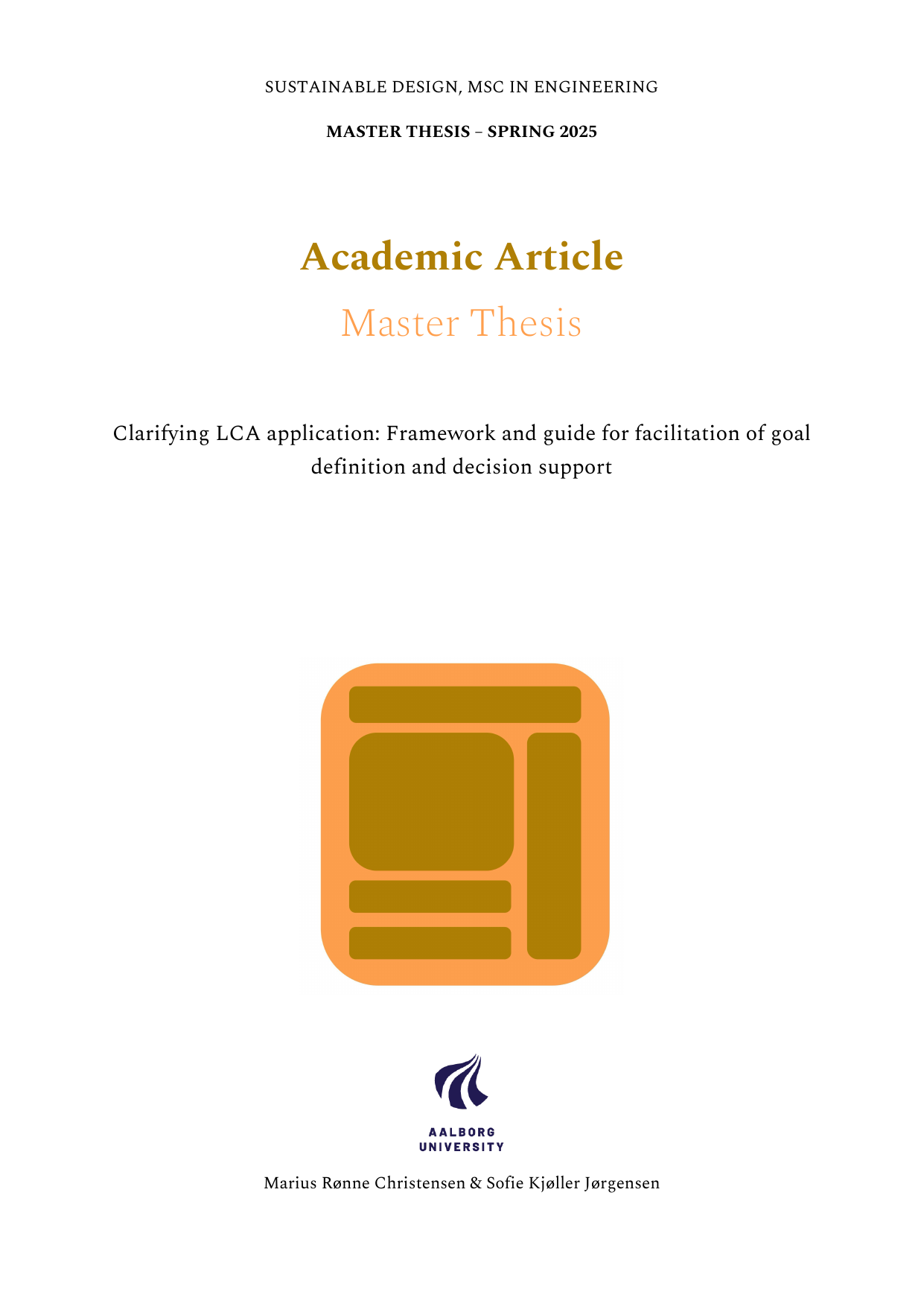
Clarifying LCA application: Framework and guide for facilitation of goal definition and decision support
Translated title
Behovsafklaring for LCA-anvendelse: Framework og vejledning til facilitering af goal-definition og decision support
Term
4. Term
Education
Publication year
2025
Submitted on
2025-05-27
Pages
40
Abstract
A key gap identified in this research is that, while Life Cycle Assessments (LCAs) are intended to inform decision-making for environmental improvement, existing guidance, such as the ISO 14040/44 standards and officially recognised handbooks, provides limited support for helping organisations explore how an assessment can be effectively applied in decision-making contexts. This project explores how LCA consultants and organisations' sustainability leads can facilitate the definition of the goal and the application of an LCA in ways that inspire, support, and promote change and decisionmaking. Applying the Design Research Methodology, the study progresses through three phases: Research Clarification, Descriptive Study I, and Prescriptive Study. Literature analysis and empirical data address how the goal phase links to LCA outcomes (RQ1) and what mechanisms currently support this (RQ2). Based on these insights, a design support was developed using sustainable design methods (RQ3). Staging Negotiation Spaces and Boundary Objects theory have supported the development of a framework that aims to structure reflection, foster collaboration, and align LCA application with decision-making. The study presents a structured goal definition process that enhances the relevance and impact of LCA by clarifying its intended use and embedding it in the decision-making context. It introduces a typology of LCA applications and a sixstep goal formulation framework, which support transparent, participatory definition of purpose. Moreover, organisational learning is identified as a valuable and often overlooked application of LCA.
Documents
